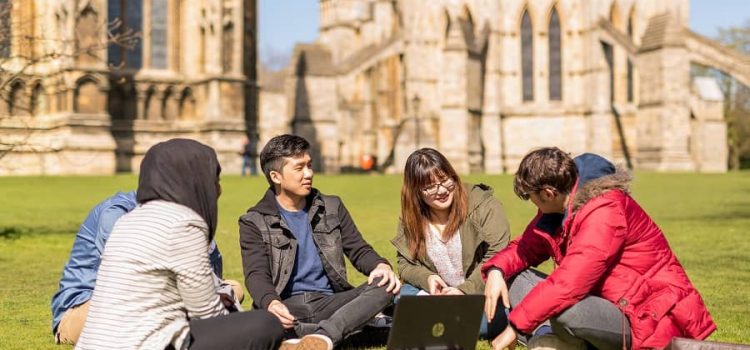
Introduction
Step onto the leafy grounds of Princeton University, and you enter a world where academic brilliance meets rich tradition. Founded in 1746, this Ivy League school has guided generations of students toward discovery and leadership. From majestic Nassau Hall to modern research labs, Princeton blends a storied past with bold innovations. In this article, we’ll take you on a journey through the university’s history, standout academic programs, pioneering research, vibrant campus life, and the many paths students follow around the globe. By the end, you’ll see why Princeton continues to inspire bright minds.
A Rich Historical Legacy
Princeton’s story begins in colonial America, when local leaders felt a new nation needed a home for higher learning. Originally the College of New Jersey, it was renamed Princeton University in 1896. Nassau Hall, the oldest building on campus, once served as the nation’s temporary capital in 1783. Over nearly three centuries, Princeton has nurtured founders, scientists, artists, and public servants. The university’s early commitment to small classes and close mentorship set the tone for its modern approach, where student and faculty collaborate closely on research and scholarship.
Top-Ranked Academic Programs
Academic excellence lies at the heart of Princeton. The university offers over 36 departments, from humanities like English and philosophy to sciences such as physics and molecular biology. In engineering, the School of Engineering and Applied Science works on robotics, renewable energy, and materials science. Undergraduates tackle a senior thesis—a yearlong research project that culminates in fresh insights and real contributions. Graduate students join leading labs and centers to explore topics like quantum computing and global policy. With small seminars and hands-on labs, Princeton ensures each student gains deep knowledge and critical thinking skills.
Pioneering Research and Innovation
Princeton’s cutting-edge research defines its role on the world stage. The Princeton Plasma Physics Laboratory explores fusion energy, aiming for clean power solutions. At the Princeton Neuroscience Institute, scientists use advanced imaging to study brain function and disorders. Interdisciplinary centers—like the Andlinger Center for Energy and the Environment—bring engineers, economists, and environmental experts together to solve climate challenges. Princeton faculty consistently win Nobel Prizes, Fields Medals, and Rhodes Scholarships. With generous funding and modern facilities, the university empowers researchers to tackle everything from disease cures to sustainable technologies.
Vibrant Campus Life
Life at Princeton extends far beyond the classroom. The campus buzzes with over 300 student clubs and organizations. Eating clubs, unique to Princeton, serve as social and dining hubs where students forge lifelong friendships. Every spring, Lawnparties fill the campus greens with live music and festivity. In winter, the P-rade kicks off Reunions Weekend, inviting alumni back for class gatherings and fireworks. Tigers rally behind the football and basketball teams at Princeton Stadium and Jadwin Gym. Cultural groups celebrate global traditions through festivals, performances, and art exhibits, enriching campus diversity and spirit.
Commitment to Diversity and Inclusion
Princeton strives to create an inclusive community where every student feels welcome. The university meets 100% of demonstrated financial need, ensuring that cost is never a barrier. Programs like the Scholars Institute Fellows Program (SIFP) support first-generation and low-income students with mentoring and skill workshops. The Office of Diversity and Inclusion hosts dialogues on bias and equity training for faculty and staff. Academic centers focused on race, gender, and globalization offer platforms for underrepresented voices. By embracing varied perspectives, Princeton deepens its learning environment and prepares students to lead in a diverse world.
Historical Evolution
Founding and Early Years
Established as the College of New Jersey, Princeton began in Elizabeth, New Jersey, before moving to its current location in Princeton in 1756. Its roots trace back to the vision of religious leaders and colonial figures aiming to cultivate educated ministers and leaders for the burgeoning American colonies.
Transformation into a University
In 1896, the college was officially chartered as Princeton University, marking a pivotal shift towards becoming a comprehensive university offering diverse fields of study. This transformation set the stage for its expansion into various disciplines, solidifying its status as an eminent educational institution.
Academic Excellence
World-Class Faculty
Princeton’s academic prowess owes much to its distinguished faculty members, comprising Nobel laureates, Pulitzer Prize winners, and leading scholars across disciplines. Their dedication to teaching, research, and mentorship has shaped generations of scholars and contributed significantly to advancements in various fields.
Rigorous Curriculum and Interdisciplinary Studies
The university’s curriculum emphasizes critical thinking, intellectual curiosity, and interdisciplinary learning. Students benefit from a flexible curriculum that encourages exploration across disciplines, fostering well-rounded individuals equipped to tackle complex global challenges.
Research and Innovation
Princeton’s commitment to research excellence is evident in its cutting-edge facilities and laboratories. From fundamental discoveries in science and technology to groundbreaking social science research, the university continues to push the boundaries of knowledge, driving innovation and societal progress.
Campus Culture and Community
Vibrant Student Life
The campus offers a rich tapestry of cultural, academic, and extracurricular activities. Student-led organizations, cultural clubs, and academic societies provide avenues for personal growth, leadership development, and community engagement. The residential college system fosters close-knit communities, nurturing lifelong friendships and a sense of belonging.
Diversity and Inclusion
Princeton has made strides in promoting diversity and fostering an inclusive environment. Initiatives and programs aimed at supporting underrepresented groups, coupled with a commitment to equity and access, reflect the university’s dedication to creating a diverse community that values varied perspectives.
Global Engagement
The university’s global outlook is evident through its international student body, global research collaborations, and study abroad programs. Encouraging cross-cultural exchanges and global perspectives, Princeton prepares students to navigate an interconnected world.
Contributions to Society
Leadership and Public Service
Princeton instills a sense of civic responsibility and leadership among its students. Many alumni have gone on to excel in public service, shaping policies, and making impactful contributions to society in various capacities.
Impactful Research and Innovation
The university’s research breakthroughs have had far-reaching implications, from advancements in renewable energy and climate change research to insights in healthcare, economics, and policy-making. These contributions continue to shape industries and address pressing global challenges.
Cultural and Artistic Contributions
Princeton’s influence extends beyond academia into the realm of arts and culture. Alumni have made significant contributions to literature, art, music, and other creative fields, leaving a lasting legacy in the cultural landscape.
Conclusion
Princeton University stands as a testament to academic excellence, a beacon of innovation, and a nurturing ground for future leaders. Its rich history, commitment to rigorous scholarship, vibrant campus culture, and contributions to society underscore its enduring legacy in shaping minds and impacting the world. As it continues to evolve and adapt to the changing landscape of education, Princeton remains a powerhouse of learning, inspiring generations to strive for greatness.









